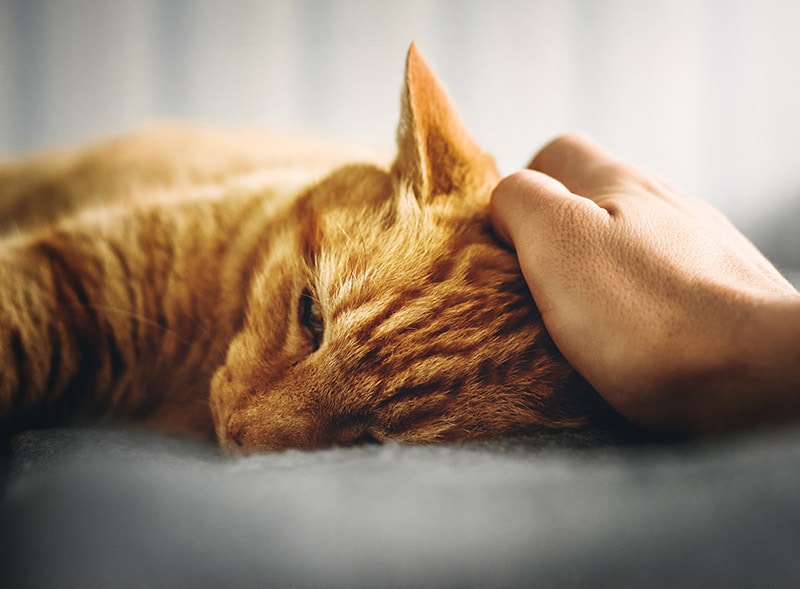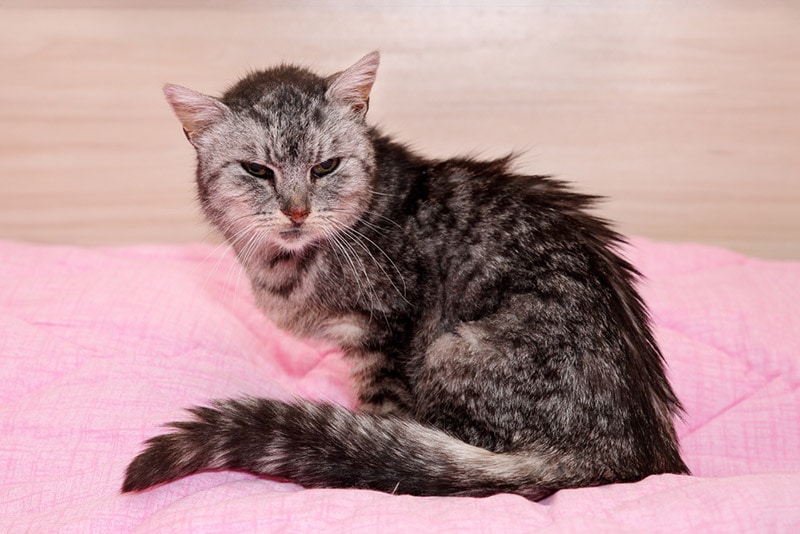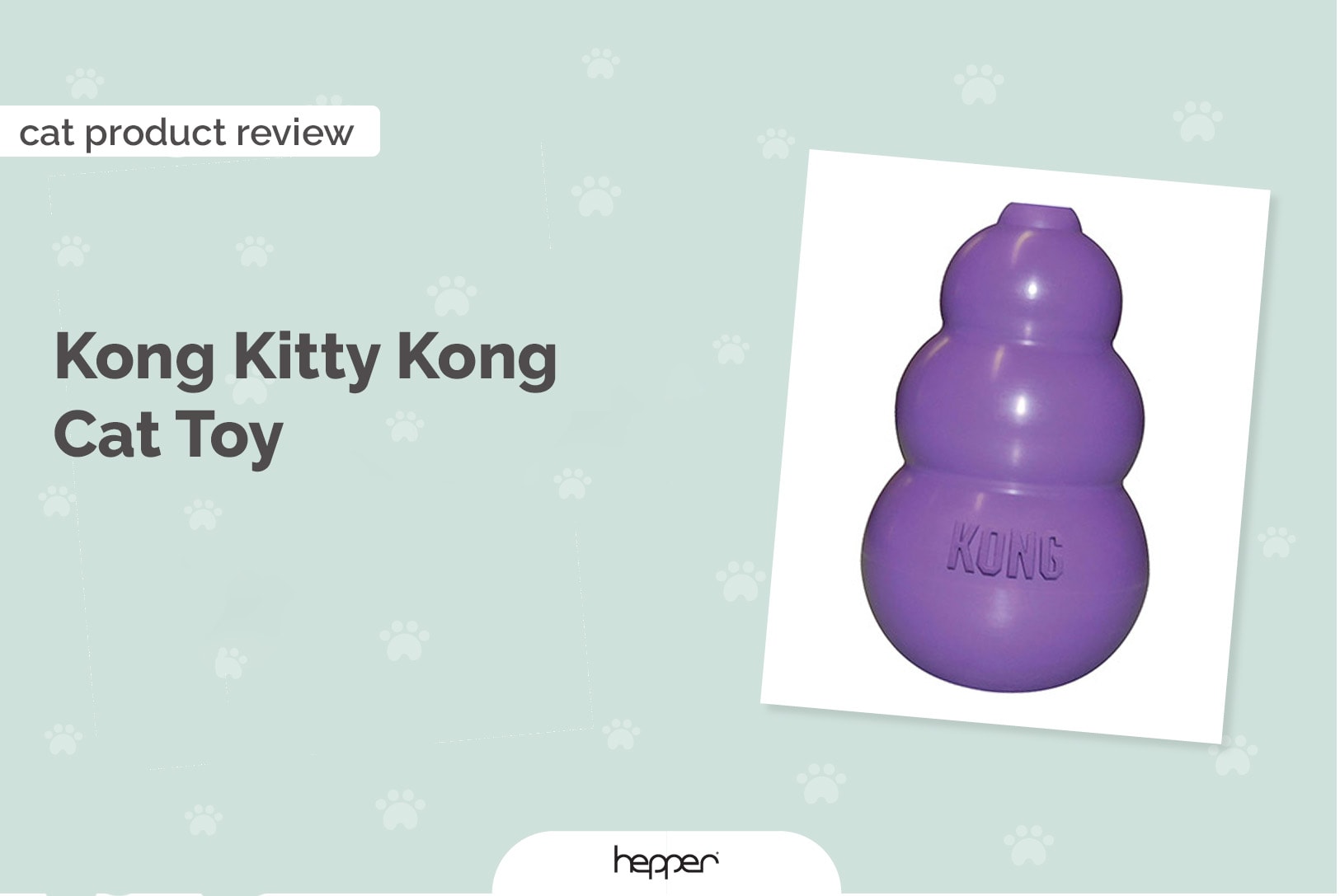How to Clean a Cat’s Butt: 7 Vet-Approved & Effective Steps
By Jessica Kim
Updated on
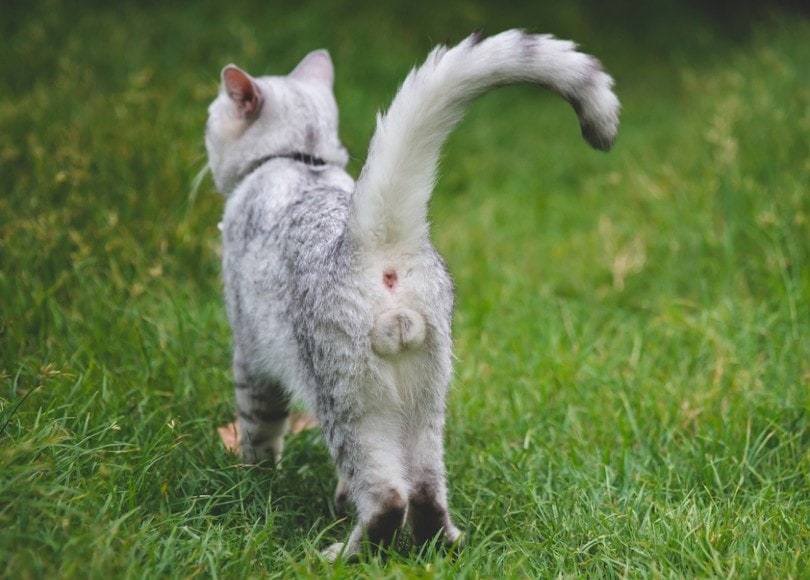
Cats do a pretty good job of self-grooming and keeping themselves clean. However, they may need some help in special circumstances and require assistance cleaning their butt from time to time. For example, cats with longer hair can get fecal matter stuck on their butts, and sick cats experiencing diarrhea may get overwhelmed and need some help.
Though cleaning a cat’s butt is one of the less desirable parts of caring for a cat, it’s still important to know how to do it properly. Keeping this area clean will prevent infections and keep your living area clean. So, here’s what you need to know about how to clean a cat’s butt.
The 7 Steps on How to Clean a Cat’s Butt
1. Wear Proper Attire
Cleanliness is a significant priority when cleaning your cat’s butt. Cat feces are hosts to bacteria and parasites, like Toxoplasma gondii 1, that can transfer to humans and cause us to get sick, especially those with a compromised immune system. So, make sure to take protective measures before handling your cat. Put on a pair of rubber gloves and tie your hair back if you have longer hair. If your cat’s butt is really dirty, you may want to put on a mask to protect yourself from any splashes while you wash your cat.
It’s also a good idea to wear long sleeves or find gloves that go up to your elbows. This will protect your arms from any teeth or attempts to scratch while you clean your cat.
2. Get Help or Use a Cat Grooming Bag
Your cat’s rear end can be a sensitive and vulnerable area, so it’s very likely your cat won’t sit still as you clean. So, you may need to ask someone else to help you. One person can hold your cat and keep them still, and the other person will do the cleaning.
You can also invest in a cat grooming bag. This wraps around your cat safely and prevents them from moving or clawing at you. You can also carefully wrap your cat with a towel.
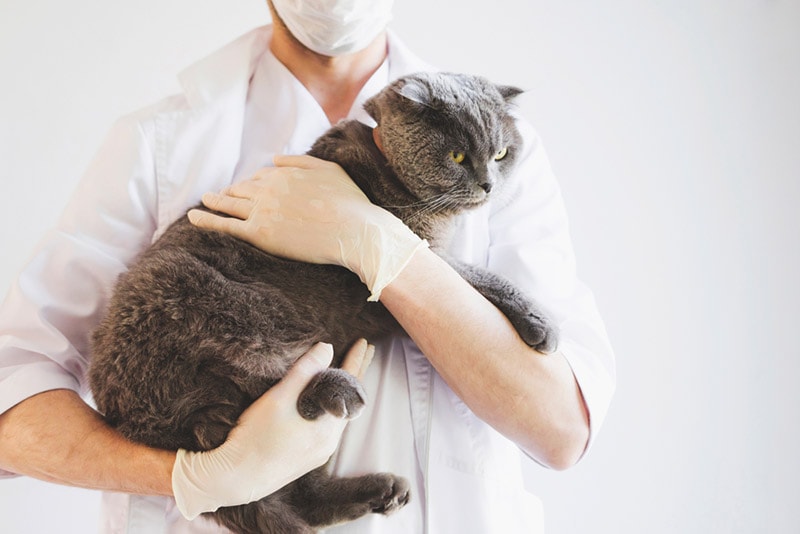
3. Use Wipes
Take the most minimal approach when cleaning your cat’s butt. Some cats may just have some small bits of fecal matter stuck around their anus and simply require a thorough wipe.
If your cat only needs a quick wipe, make sure to use wipes that are specifically designed for cats. These types of wipes will have formulas that won’t cause skin irritation. It is also important to choose thicker wipes that won’t tear easily. Textured wipes are also helpful because they help break down and remove fecal matter more effectively.
Start wiping your cat by breaking down any larger pieces of poop. Don’t try to remove the poop by tugging at it because it’ll be painful for your cat. Moistening dried pieces of poop with the wipes will make them easier to remove.
Once you’ve removed larger pieces of fecal matter, gently wipe down your cat’s butt. Work the wipe’s formula into your cat’s hair to ensure it gets cleaned thoroughly. Keep cleaning until the wipes no longer get stained. It can take several wipes to completely clean your cat’s butt.
If you’re looking for a set of reliable cat wipes, these wipes fit the bill for high-quality wipes that will make cleaning your cat a much easier experience.
Cats are famously good at grooming themselves, but sometimes they need a little extra help. Natural, hypoallergenic wipes like our Hepper Wash Wipes can help you keep your cat clean without causing any irritation. These wipes are specifically designed to work on all ages of cats, gently cleaning sensitive areas while effectively removing dirt and grime.
4. Use Pet Shampoo
Cats experiencing diarrhea will often require a more thorough wash that’s too big for wipes to handle. If your cat needs a bath, set up a tub with warm water and use shampoo made for cats. Using regular soap or human shampoo can over-dry your cat’s skin and feel irritating.
After you get your cat in the bath, make sure that their rear end is thoroughly soaked with water. Then, work the pet shampoo through your cat’s coat by using circular motions. After you’ve worked up a good lather, rinse the shampoo and check for any remaining stains. In more severe cases, your cat may require a second shampoo application.
It’s important to use shampoo and wash your cat one more time after you’ve removed the poop. Fecal matter could have gotten onto other parts of their coat while you were washing it out. So, doing a second cleaning complete with a thorough rinse will help ensure that all fecal material is removed. Then, use a highly absorbent towel to dry off your cat.
We recommend Hepper Colloidal Oatmeal Pet Shampoo for this job because of its a gentle yet powerful formula. It lathers well to make removing fecal matter quick and easy. It also has a pH-balanced formula to prevent skin irritation, and the colloidal oatmeal will soothe and nourish the skin.
Keeping your pet's skin and coat clean and healthy is very important, but finding a great shampoo can be harder than the actual grooming! We love our Hepper Pet Shampoos because they makes grooming so much easier. These pH-balanced formulas are made with natural ingredients like oatmeal, cucumber, and aloe. They are free of phthalates, sulfates, and soaps and very gentle on your pet's skin. Now you just need to decide which formula is best for your fur baby! Here’s a quick guide to help you choose the right option for your pet’s next bath!
Hepper Colloidal Oatmeal Pet Shampoo
Hepper Waterless No Rinse Pet Shampoo
Natural cucumber & aloe scent
Safe for cats & dogs
Rinsing required
Free of harsh chemicals & nasty ingredients
Lathers easily
5. Check for Signs of Infection
After you’ve removed the poop around your cat’s butt, check for any signs of infection and health concerns. Your cat’s anus might be inflamed and require some veterinary care and attention. In some cases, cats can have underlying health issues like colitis or proctitis that can cause diarrhea and an inflamed rectum. If you notice redness or swelling, consult your veterinarian to determine the right treatment for your cat’s condition.
6. Reward Your Cat
Cleaning your cat’s butt will feel like a necessary evil, and your cat won’t particularly enjoy it. So, reward them for putting up with this uncomfortable experience. Give them some of their favorite treats or follow up the bath with a fun play session.
Consistently rewarding your cat right after any baths or other cat grooming experiences can help them tolerate them better over time. Your cat doesn’t have to enjoy these experiences, but rewarding your cat can help build a positive association with them and make them less resistant.
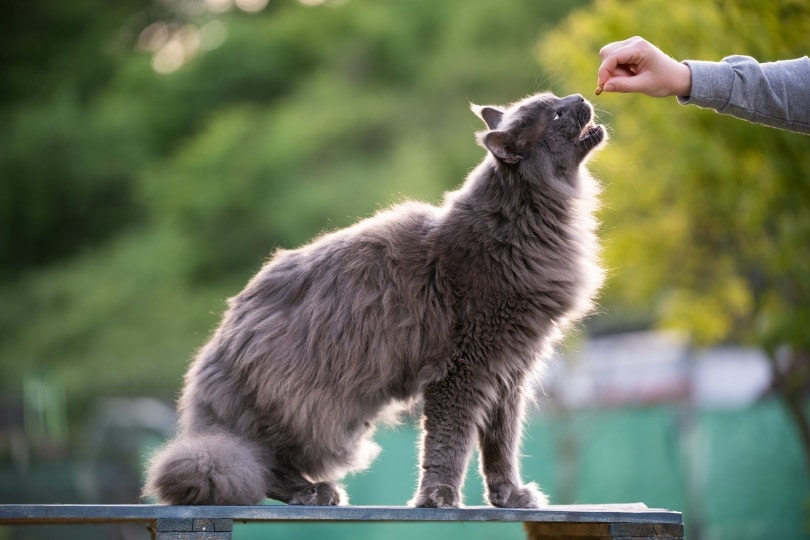
7. Sanitize
Make sure to thoroughly sanitize the work area once you’ve finished cleaning your cat. Using disinfectant wipes or sprays will help to kill bacteria and viruses and prevent the spread of diseases. Wash your hands as well.
Conclusion
It’s unpleasant, but still extremely important to know how to clean your cat’s butt properly. Preparing yourself beforehand and using the right supplies will help make cleaning a smoother and quicker process. Always make sure to reward your cat and sanitize the area afterward. If your cat does not self-groom or frequently gets poop or diarrhea stuck on their coat, consult your veterinarian to determine if there are any underlying health issues. You might also want to book a grooming appointment to trim the area around your cat’s butt to help keep it clean for good.
See also:
- How to Tell if Your Cat Is Underweight – Is Your Cat Too Skinny?
- Why Is My Cat Scooting? 4 Reasons & What to Do About It!
Featured Image Credit: Lenar Nigmatullin, Shutterstock






